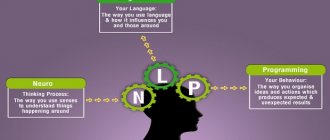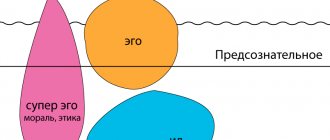Each inhabitant of our vast planet has its own basic needs, even the simplest ones - single-celled ones. If all the needs experienced are not met, the creature will not be able to function normally, feel comfort and enjoy life. Humanity has a significant number of requests that must be fulfilled in a timely manner in order to continue to live. In this article I will talk in detail about the physiological needs of a person and give a detailed definition of what they are.
What are physiological needs
Human physiological needs are the most important driver of behavior for both individuals and entire nations. We know from history how, fleeing hunger, tribes on barren lands went to war against their neighbors, recapturing their fields and livestock. The thirst of those lost in the desert could push them to kill if another person stood between them and the water. Therefore, no one will argue about the importance of these human needs. However, fortunately, people do not live only by them. Otherwise, absolutely nothing would distinguish us from animals living by instincts. What, besides food and water, does a person need? Let's look below.
What needs does a person have besides physiological? Maslow's pyramid
This concept is interpreted differently in many branches of science. The famous American psychologist A. Maslow even created the so-called “pyramid of needs”. This is a unique model of human motivation. This pyramid has gained enormous popularity; it was literally taken brick by brick by marketers, psychologists and psychiatrists, advertising creators and management luminaries. However, the professor himself never used it to explain his theories. He considered the physiological needs of a person to be leading only when they were pathologically dissatisfied. Simply put, food becomes the main thing for a person during its (possibly long) absence. If the individual is full, then that need gives way to higher and more valuable ones.
At the heart of the diagram we see human physiological needs, such as hunger and thirst, as well as key sexual instincts (or libidinal, as the great Freud called them).
Safety comes second. The concept is somewhat vague, it includes the well-known concept of comfort, coziness, stability of the habitat (home), protection from external factors and possible enemies. And only in third place are social needs, that is, a person will think about their satisfaction after satiation and being in comfort. That is, the physiological need is key. After social ones (communication, care, general affairs), the fourth level of the diagram depicts the so-called “prestigious”, or needs for prestige, that is, for respect and self-esteem (whether these concepts are related or not, we’ll let psychologists figure it out). The crown of the pyramid is spiritual needs.
What other needs are there besides biological?
The creator of the pyramid of values, A. Maslow, considered the physiological need to be leading in something. This unique table in the form of a triangle gained great popularity, and psychologists, marketers, advertising specialists and management professionals immediately began to use it in their activities.
The basis of the pyramid is made up of biological needs, which I listed in detail above, the second step is occupied by the need for security (the presence of comfort, coziness, stable work). At the third level there are social values (communication, being in the spotlight). The fourth stage consists of prestigious needs - respect, recognition, self-sufficiency and independence. And the last level is spiritual values (art, creativity).
Why do you need to satisfy physiological needs?
Satisfaction of needs according to Maslow comes from the bottom up. That is, only with the most complete satisfaction of the lower level is a transition to the highest possible. The spiritual and social development of a person is important, but in the grip of hunger he simply will not have time for them. These schemes were used by tyrants and generals in ancient powers even before our era. Hungry people are easier to manage than well-fed people. The unsatisfied physiological needs of the human body prevented him from thinking, much less striving for freedom or independence. Fortunately, tyranny and the slave system have been almost eradicated today, but marketers and creators (creators of advertising) have taken possession of the truly magical secret pyramid. They construct their texts by appealing to the lower instincts of man.
General information
Purely theoretically, in the event of the death of civilization and the loss of what has been created by man over thousands of years of existence, from all the requests that are currently important (spiritual, creative, social), physiological needs will remain the most paramount, that is, only what is inherent in the animal to the world.
No matter how important spiritual and cultural values are for a person, it is vital for him to restore strength and activity: sleep, eat, drink, breathe. The level of created goods loses its meaning without satisfying natural basic needs.
Physiological needs of the child
Why are we given physiological needs? The answer is simple - for survival. Without these needs, we simply would not be able to survive and live. A person is already born with these needs. This can be seen especially clearly in the example of newborns. Eating for a baby is usually caused by a demanding loud cry. And this is understandable, the child cannot say or demand what is necessary in any other way. The baby’s key needs are food, maternal warmth (which replaces several needs of our pyramid at once: safety and social contact), good sleep and normal well-being. When these needs of the child are met, we will get a calm, smiling child who wants to play and see something interesting; when dissatisfied - a continuously screaming and crying lump, reminiscent of a wounded animal.
Hierarchy of values
Abraham Maslow, the creator of the pyramid of needs (you will learn about it in detail by clicking here), believed that all of the above needs are leading only at the moment when their dissatisfaction is felt. The rest of the time, the individual is more concerned about material and spiritual values.
For example, do you think about how you breathe? Just like that, solving work issues and doing everyday things? Do you pay attention to this vital process until difficulties arise that prevent you from inhaling and exhaling? If you don’t meditate, or don’t try to perform techniques to calm yourself, then it’s unlikely. As long as there is no lack of oxygen, attention will be focused on other tasks.
Physiological needs of an adult
The needs of an adult repeat the needs of a child in everything, only one more particularly important instinct is added to them - reproduction (sexual, libidinal). This “basic instinct,” if dissatisfied, can turn a person into a real aggressor. With adequate hormonal background, of course. Nowadays, due to environmental pollution, poor nutrition and other factors, this need is muted for many. However, there are also people for whom it exceeds other needs, which pushes them to crime. Fortunately, there are only a few of them, and they most likely have a history of psychiatric pathologies.
As for healthy people, where this physiological need is in its rightful place, it is worth saying that it is wrong to both underestimate its importance and exaggerate it. The latter is characteristic of cinema and pop stars, who appeal with their appearance and creativity to this ancient instinct. A healthy, appropriate attitude is very important here. Intimate relationships are important for a person, but this does not mean that you need to indulge in them at every opportunity. The ideal option is marriage or a stable relationship with a loved one.
Structure, classification and boundaries of human needs
Depending on the individual abilities and aspirations of some people, after the basic needs of existence are satisfied, the desire to maximize the consumption of material goods will dominate; for others - to power and glory; for others - to knowledge and creativity; for others - to spiritual improvement.
The main problems of needs analysis are to establish their composition, hierarchy, boundaries, levels and possibilities of satisfaction. These problems are closely interrelated. In particular, as will be shown below, the hierarchy of needs is largely determined by the levels of their satisfaction.
As A. Marshall wrote, “man’s needs and desires are endless.”
A hundred years later, the great economist’s compatriot, the authoritative psychologist M. Argyll, notes approximately the same thing: “We do not yet know the complete list of human needs.”
Currently, the classification proposed by the American psychologist A. Maslow is considered the main one. He identifies five groups of needs: physiological, security, belonging (to a team, society), recognition and self-realization (self-expression). These groups form a hierarchical structure, that is, it is assumed that the needs are satisfied sequentially in the order in which they are listed. This diagram is usually depicted as a pyramid or ladder of needs.
In K. Alderfer's classification, three groups of needs are distinguished: existence, connection and growth. Existence needs correspond to the first two groups of Maslow’s needs, communication needs correspond to the third and fourth groups; growth needs - the fifth group. This scheme, like Maslow's scheme, has a hierarchical structure.
D. McClelland identifies the needs of achievement, participation and power. These needs do not have a hierarchical structure; they interact depending on the individual psychology of a person.
One of the most famous is F. Herzberg’s two-factor theory of needs. According to this theory, all factors that determine human behavior in an enterprise can be divided into two groups, hygienic and motivating. Herzberg proposed to include sanitary and hygienic working conditions, ensuring physiological needs, as well as the needs for safety and confidence in the future. Motivating factors are correlated with the needs of self-expression and development.
Considerable attention is paid to the analysis of needs in domestic literature on psychology and sociology. In particular, V.I. Tarasenko considered two groups of needs: existence and development; V. G. Podmarkov - three groups: security, vocation and prestige.
In textbooks on general economic theory, it is common to divide needs into primary (for food, clothing, housing, procreation) and secondary (for communication, knowledge, development). It is usually noted that such a grouping is conventional even for an individual at different periods of his life.
When classifying needs, as with any other classification, the requirement of completeness must first of all be met. This means that each element of the analyzed set must be assigned to one or another group. In the problem under consideration, the fulfillment of this condition is complicated by the fact that it is almost impossible to establish a complete list of human needs.
In many classifications, including the most well-known, the requirement of completeness is not met. Thus, in the schemes of Maslow, Alderfer and McClelland there are no groups to which the needs for freedom, faith, spiritual improvement, etc. could be attributed.
An important aspect of needs analysis is their hierarchy.
The condition for the emergence of intellectual and spiritual needs is the functioning of the physiological systems of the human body. However, many authors make this dependence absolute. Sometimes Maslow's scheme is presented as if the needs for creativity and self-realization can appear only after all other needs have been fully satisfied.
For example, one of the most famous marketing specialists, F. Kotler, illustrates Maslow’s pyramid with the following reasoning from US resident Betty Smith, who was planning to buy an expensive camera: “What light does Maslow’s theory shed on Betty Smith’s interest in purchasing a camera? One can guess that Betty has already satisfied her physiological, self-preservation and social needs, which do not motivate her interest in cameras. And interest in a camera can stem either from a strong need for respect from others, or from a need for self-affirmation. Betty wants to realize her creative potential and express herself through photography."
From this quote and other descriptions of Mrs. Betty Smith’s consumer behavior, which F. Kotler sets out on several pages of his book, it follows that the named lady needs only a Nikon camera to be completely happy at the top of Maslow’s pyramid.
More on the blog: We convince and inspire through changing the picture of the world
Although there is some consistency in satisfying needs, it cannot be considered the same for all people. There are known facts when the need for creativity and spiritual improvement became dominant not after satisfying all other needs (physiological, involvement, recognition, etc.), but, essentially, on the verge of survival, when the basic needs for food were not yet satisfied, housing and security.
The strength of the need for creativity can be judged by the biographies of outstanding scientists and artists. Many of them, like P. Gauguin, gave up a prosperous existence for the opportunity to create. Archimedes and Dmitri Shostakovich created great works in besieged cities. Twenty-year-old Evariste Galois developed the foundations of modern algebra in his prison cell. On the eve of the duel, which ended tragically for him, he was writing a mathematical article.
Modern biology and psychology view higher spiritual and social needs (including the need for creativity and altruistic action) as the result of evolution. These needs are aimed at adapting a person to the environment, ensuring the continuity of generations and the sustainability of society.
Experience shows that the hierarchy of needs is predominantly individual or group. What can be considered general is that the satisfaction of the needs of existence at a certain basic level is a necessary condition for the formation of all other needs. Consequently, when classifying needs, not only their types, but also their levels of satisfaction should be taken into account.
Thus, the classification schemes known to us do not take into account:
- the entire range of human needs;
- individual differences in the composition, hierarchy and significance of needs;
- levels of need satisfaction;
- dependence of needs on the values and goals of a person’s life.
To take these factors into account, it is advisable first of all to divide needs into two types: the needs of existence and the needs of achieving life goals.
Existence needs usually include physiological and safety.
We believe that the needs of belonging should also be classified as this type. This is determined by the fact that a person cannot exist for any long time outside of any group (in particular, a family).
The following main levels of satisfying the needs of existence can be distinguished:
- minimum;
- base;
- level of luxury.
The minimum level of satisfaction of the needs of existence ensures human survival.
The basic (normal) level provides the opportunity for the emergence of significant intellectual and spiritual needs. This level can be determined both subjectively and objectively. In the first case, the criterion for achieving the basic level is the time that a person is occupied with thoughts about meeting the needs for food, clothing, housing and security.
It is advisable to assume that this time should not exceed half of the waking time. An objective assessment of the basic level can be the consumer budget, which experts consider necessary for various types of activities. In particular, the work of miners is among the most intense and dangerous. Therefore, the costs of food and rest for miners are objectively higher than for office personnel.
The level of luxury is proposed to be considered one in which the satisfaction of the needs of existence above the basic level becomes an end in itself and/or a means of demonstrating a high social status. At the level of luxury, a person “lives to eat, not eats to live.” Characteristics of an appropriate lifestyle are available in the works of A. Marshall, T. Veblen and many other authors.
Thus, Marshall has the following statements: “Laws against luxury have been in vain, but it would be a great achievement if the moral spirit of society could induce people to avoid all forms of boasting of individual wealth.” “The world would be a much more perfect place if everyone bought fewer and simpler things, tried to choose them from the point of view of their true beauty; the consideration of the effect upon the general welfare of the manner in which each individual spends his income is one of the most important objects of the practical application of economic science to the way of life of men.”
The above levels, of course, do not exhaust all levels of satisfying the needs of existence. As an illustration, we can cite data on the “rise” of needs in Germany after the Second World War. With the clarity characteristic of the German language, German economists write about three large waves of needs during the first 5-6 years of economic recovery: “der sogenannten “Fress-Welle” (the so-called “wave of gluttony”), “der Kleidungs-welle” (“ wave of clothes"), "der Wohnungswelle" ("apartment wave"). After this, the need for luxury (die Luxusbediirfnisse) began to develop.
Also on the blog: If you want to do something, do it, don’t shake the air!
For most people, the level of satisfaction of physiological needs significantly affects the structure of intellectual, social and spiritual needs. At the same time, it has been known since ancient times that the less a person is focused on material wealth, the more freedom he has from life’s circumstances and the powers that be. All great philosophers and religious leaders called for a reasonable limitation of physiological needs. A. Schopenhauer gives numerous statements on this topic. For example: “Socrates, seeing luxury goods put up for sale, exclaimed: “There are so many things that I don’t need.”
Thus, after achieving the basic level of satisfying the needs of existence, the needs to achieve life goals are formed, which, it is advisable to differentiate into four groups:
- material benefits for the individual and family;
- power and glory;
- knowledge and creativity;
- spiritual improvement.
Depending on individual inclinations, abilities and aspirations, in some people, after achieving the basic level of satisfaction of the needs of existence, the desire to maximize the consumption of material goods will dominate; for others - to power and glory; for others - to knowledge and creativity; for others - to spiritual improvement.
In conclusion, let us dwell on the problem of the boundaries of needs.
The opening pages of books on basic economics usually postulate that such boundaries do not exist. For example, in the introduction of one of the most reputable US textbooks on economics, Fr.
A similar statement is made by German specialists and domestic authors. The thesis about the limitlessness of needs is usually considered as a kind of axiom, from which the need for rational use of limited resources is derived, which, in turn, predetermines the subject of economic science.
There is no doubt that man’s spiritual needs, his desire for knowledge, development and application of his abilities have no boundaries. As for material needs, their limitlessness cannot be considered obvious. In the world of things, the desires of a reasonable person with the richest imagination are quite specific.
Sometimes the limitlessness of needs is derived from technological progress. But by creating new goods and services, it is ultimately expressed in an increase in per capita consumption of energy and other natural resources. Their number is limited and constantly decreasing.
To prove the need for rational use of limited resources, it is not at all necessary to proceed from the axiom that human needs are limitless. It is known that the smaller the requirements of the axioms, the stronger the building of the theory. Therefore, as a postulate defining the tasks of economic science, the statement that people’s needs are greater than the possibilities of satisfying them is quite sufficient.
The structure of needs can change for the same person during different periods of his life. Moreover, the lower the subjectively normal level of satisfaction of the needs of existence, the more likely it is that after its achievement, intellectual and spiritual needs will dominate.
The main differences of the proposed structure of needs are as follows:
- needs are divided into two types: existence and achieving life goals;
- the first type includes needs: physiological, safety, belonging; to the second - the need for material wealth, power and fame, knowledge and creativity, spiritual improvement;
- There are three levels of satisfying the needs of existence: minimal, basic, luxury level; the needs to achieve life goals are formed after achieving the basic level of satisfying the needs of existence;
- basic levels of satisfaction of subsistence needs may have significant individual differences.
Author: Boris Mikhailovich Genkin , Honored Scientist of the Russian Federation, Doctor of Economics, Professor, Head of Department of the St. Petersburg State Engineering and Economic Academy.
Source
Read our classified materials
Food. How to prevent a need from becoming an addiction
Hunger and thirst, as we said above, were even the cause of wars and the nomadic life of our ancient ancestors. Fortunately, in civilized countries the concept of famine is familiar only from history textbooks. In popular culture, the other extreme is promoted - constant weight loss, pills to reduce appetite, health-improving fasting have become fashionable and popular things. But people who are led by advertising are often not aware that fighting the cornerstones laid down by nature is fraught with consequences for both physical and psychological health. Against the backdrop of the mass pursuit of the ideal body, clinical cases of bulimia (a mental or physiological disorder characterized by a constant desire to eat) and anorexia (refusal of food due to psychological personality disorders) are increasingly emerging. It is worth remembering that an unsatisfied need in the body can become addiction and mania.
Substitution
Biological needs, although they are very different in meaning and significance from the others, cannot be considered as separate. They are closely related to the desire to receive love, recognition, to show their independence, etc. Remember those same babies who require the breast, sometimes just to feel the closeness of their mother, to experience the reassurance that they are safe.
Have you heard about mental illnesses such as bulimia and anorexia? Modern society promotes the need to have an ideal body, which is why various weight loss products are actively and aggressively advertised everywhere. Sometimes success and intellectual abilities equal a beautiful appearance. This makes itself felt by the formed false stereotype. That only in excellent physical shape and a well-ironed suit can a person generate brilliant ideas and manage people.
So, when, thanks to diets, the digestion process is disrupted, if only because food rarely enters the body, disturbances also occur in a person’s ability to recognize the feeling of hunger. At times of stress, some people refuse food, some, on the contrary, abuse it in order to be distracted and switch. They try to “sweeten” their life with baking. Use large volumes to fill the feeling of “inner emptiness.”
The relationship with food may well develop into addiction, when it is difficult to control and limit yourself. Especially in moments of increased anxiety, restlessness, and dissatisfaction. This is why it is so important to be attentive to yourself and eat when you really feel hungry. And not just a desire to experience joy or calm down.
Healthy sleep as the most important need
Sleep is on a par with the needs for food and water, satisfaction of the sexual instinct and breathing. However, many downplay its importance, which is done in vain. The example of Napoleon, who slept several hours a day, will fade if we remember the unstable psyche and panic attacks of this historical character. Do you want to experience these “joys” for yourself? Hardly. Lack of sleep deprives us of psychological comfort, lowers the pain threshold (makes us more sensitive to pain), and negatively affects performance. An unsatisfied physiological need for sleep can even lead to visual and auditory hallucinations. Moreover, a sleep-deprived person working with machinery or transport can be deadly to those around him during the microsleep phase (a phenomenon when a person’s brain, which has not known rest or sleep for a long time, “turns off” for a split second).











